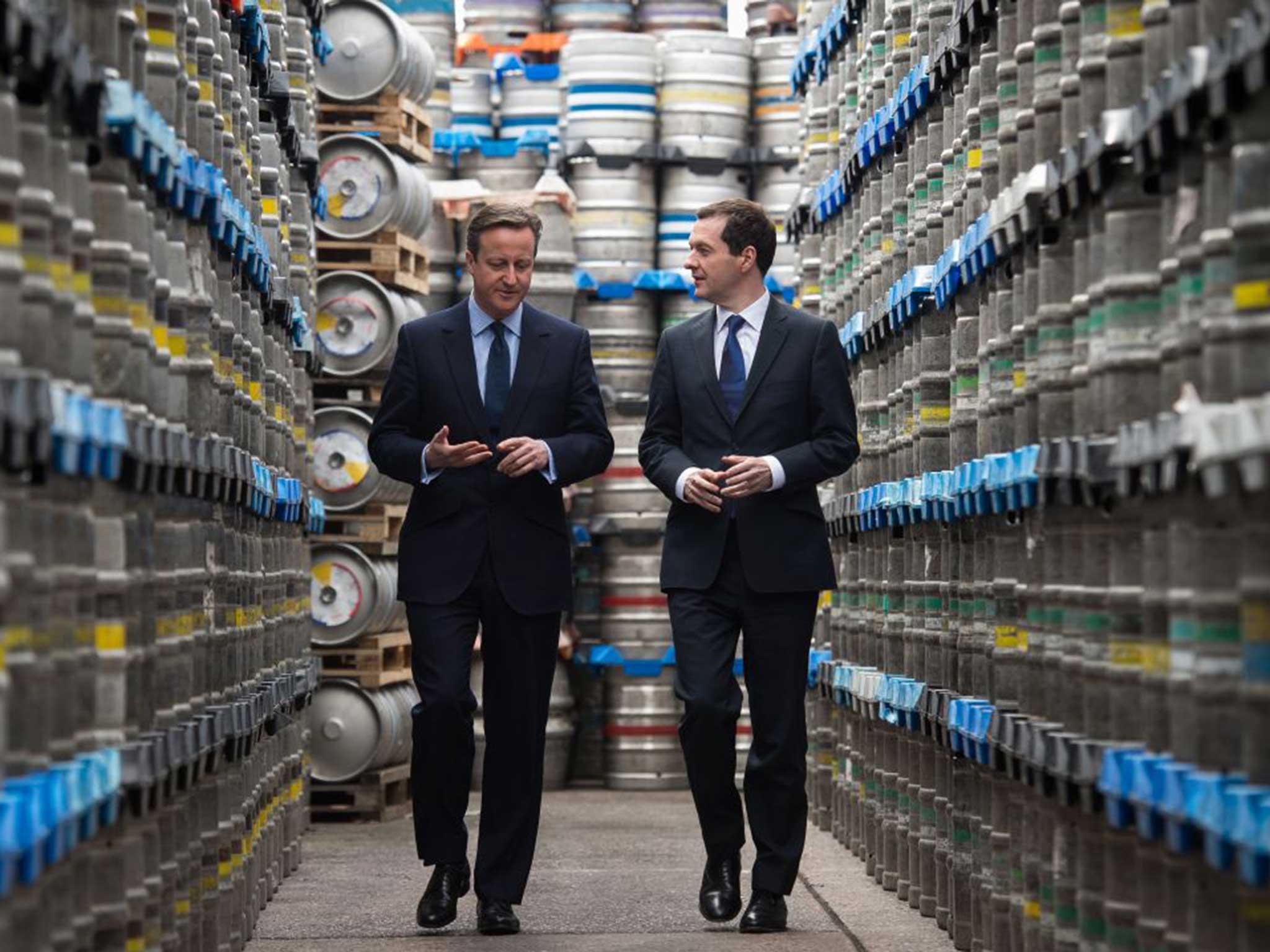George Osborne will need an economic bounce back to save him
The Office for Budget Responsibility lowered its productivity growth forecasts in the March Budget, slashing back the wiggle room in the Chancellor's fiscal plans

The performance of the British jobs market in recent years has, as we all know, been an economic marvel. Since the depths of the 2009 recession an impressive 2.4 million jobs have been created – around 1 million of them full-time employee positions, too. Even when GDP growth all but dried up in 2011 and 2012 thanks to the eurozone crisis the good old UK jobs machine carried on humming away.
The unemployment statistics (not simply the inverse of the employment numbers thanks to shifts in the size of the available labour force) have been just as impressive. The number of jobless has come down from a peak of 2.7 million and stands at just 1.7 million today. The unemployment rate has collapsed from 8.5 per cent in 2011 to just 5.1 per cent.
Small wonder Conservative ministers, from David Cameron and George Osborne down, endlessly hailed Britain’s “jobs miracle” in the run-up to last year’s general election. And the jobs market has been just as impressive since the polls closed last May with jobs rising and unemployment continuing its downward trajectory.
Until yesterday that is. The latest jobs market report from the Office for National Statistics suggests a softening. Unemployment has risen for the first time since the middle of last year in the quarter to February. And the numbers in employment have risen at a much more modest rate. Even the ONS itself, not normally given to calling turning economic points, suggested that “recent improvements in the labour market may be easing off”.
That may not be such a bad thing. The flip-side of the jobs dream has been a productivity nightmare for Britain. Output per worker and output per hour worked have flat-lined since the financial crisis. The level of national productivity remains no higher today than it was in the second quarter of 2008. And that’s without even mentioning the significant and widening productivity shortfall between the UK and the likes of Germany and the US.
That’s simply what happens if you experience a jobs miracle while GDP recovers from a recession at its slowest rate on modern record. So, in theory, a slowdown in the number of hours being worked could be a positive development, helping lift national productivity levels.
The problem is that it all depends on the reasons hiring has slowed down. Some analysts warned yesterday that the Brexit referendum might be to blame. Employers might be pulling in their horns while the nation’s future in relation to the crucial export market of the European Union is decided. Others suggested the jobs market might have slowed due to fears about the outlook for the global economy as the oil price remains low and doubts about China accumulate.
The danger here is obvious. Decent GDP growth alongside a slowdown in employment growth could be just the ticket for our productivity growth. A weak jobs market alongside a slowdown in GDP growth, on the other hand, would be doubly undesirable. Productivity would remain weak and total consumption would suffer as unemployment rose, possibly, in turn, weakening GDP further.
What does this mean for the Chancellor? In one sense Mr Osborne is already feeling the burn. The Office for Budget Responsibility lowered its productivity growth forecasts in the March Budget, slashing back the wiggle room in Mr Osborne’s fiscal plans to virtually nothing.
Yet things could still get worse for the Chancellor. Despite its recent downgrade the OBR still thinks annual productivity will bounce back to 2 per cent by the end of the Parliament. If this doesn’t happen – perhaps because of the fallout from Brexit, perhaps because of a new slump in the global economy – the Government will rapidly find itself in a whole new world of economic trouble.
Join our commenting forum
Join thought-provoking conversations, follow other Independent readers and see their replies
Comments
Bookmark popover
Removed from bookmarks